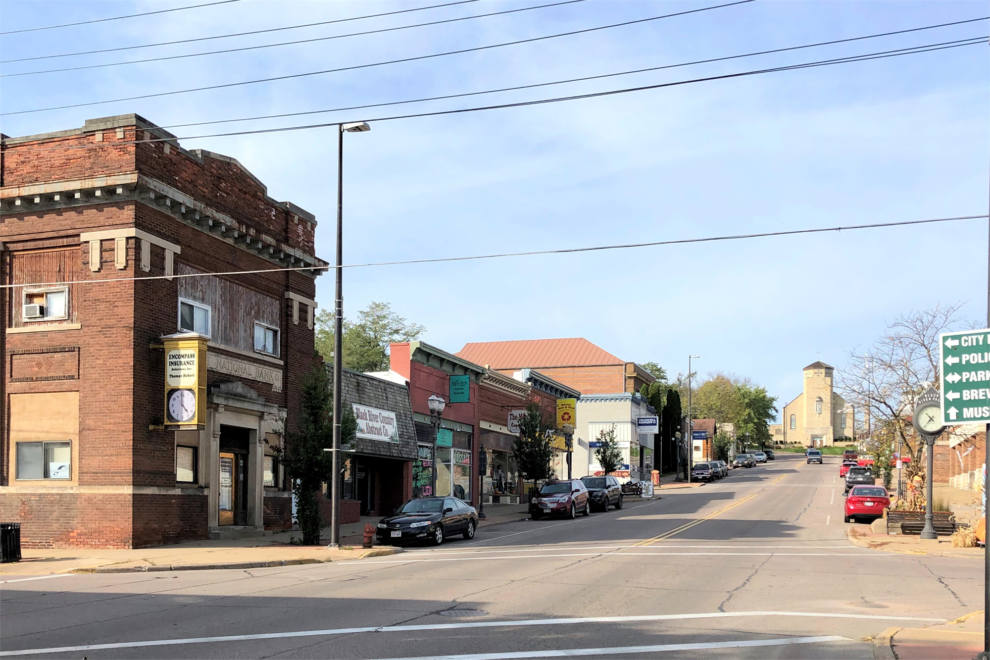Future projects may include a series of wine trails, work on Gateway District project
Muskingum County has been awarded technical assistance funding for future projects funded by the $500 million Appalachian Community Grant Program, but there is still much work to be done, said Zanesville-Muskingum County Port Authority Executive Director Matt Abbott. The port authority was the lead applicant for a number of applications across the county, although Muskingum University applied for a grant on its own.
The funds are the first of three grant cycles for projects “designed to bring about transformational change and be a catalyst for future development by providing generational investments in the Appalachian region,” according to the guidelines published by the Ohio Department of Development, which will oversee the grant program.
Transformational change is not a single building project or a single community project, but part of a larger-scale project in the region. Projects must influence economic and social well-being and instigate an increase in economic activity. Projects must cover one or more of three general areas: community development infrastructure, health care and workforce development.
The port authority was awarded $207,440.00 to fund design and planning for several projects. Muskingum University was awarded $83,705. Muskingum County will also likely benefit from $474,450 awarded to the Mayor’s Partnership for Progress.
The first phase of grants are technical assistance grants, which will help plan and develop projects, but the funds can’t be applied to brick and mortar, only to planning. That round was awarded last month. A first round of development grants for projects that were shovel-ready were awarded at the same time. Muskingum County did not have any projects that fit that criteria. The next phase will be awarded later this year, to fund the projects planned in the first round of technical assistance grants.
A steering committee with representatives from the Muskingum County Commissioners Office and the City of Zanesville as well as other local organizations was formed to guide the application process. An online portal was created for applications, and 18 projects were submitted, Abbott said.
The steering committee vetted projects using a rubric provided by the Ohio Department of Development, and making sure the projects fit American Rescue Plan Act guidelines, since the act funded the $500 million available.
“We are just working to try and have a plan to maximize the dollars for the betterment of the county, the city, the villages, townships,” Abbott said. “The overarching goal was to bring people into Appalachia, and keep people here,” he said.
Connecting communities was important for successful funding, Abbott said, so the City of Zanesville reached out to several counties across Appalachian Ohio to work together on a suitable project.
“We are currently working with nine communities in seven counties on a variety of projects aimed at downtown development, workforce development and education” said Matt Schley, Community Development Director for the City of Zanesville.
Schley said the city was hoping to partner with counties across Appalachian Ohio to create a series of wine trails connecting the communities. Centered on Zanesville, a northern route ends in Ashtabula on Lake Erie, and a more southerly route loops through Cambridge, Marietta, Athens and Logan before returning to Zanesville. The trail would involved creating taprooms in downtowns in each of the communities that take part.
Abbott said one of the plans submitted included work on theaters and auditoriums across the region, including the city’s Gateway District project around Secrest Auditorium. That project is in partnership with the Muskingum County Convention Facilities Authority, and could turn the area around the Zanesville-Muskingum County Welcome Center and Secrest Auditorium into new entertainment district, with improvements made to the auditorium and a new open-air market and restaurant on the grounds of the Welcome Center.
Both Abbott and Schley said the projects are fluid and changing. Participants could be added or leave the project, or the projects could not end up getting submitted for development funding at all.
Muskingum University, the Village of New Concord and The Wilds worked together on a grant application, and were awarded funds for planning to “expand the workforce development model developed in our existing WORC program to multiple other employment areas that will benefit economic development in the region,” said Muskingum University President Susan Hasseler. “The grant will allow us to not only develop programming models but to examine the feasibility of facility upgrades to support this programming.” The Muskingum University WORC program is funded by a Workforce Opportunity for a Rural Communities Initiative grant from the U.S. Department of Labor.
Applications are due later in the year, although Abbott said there is not a firm date. He hopes to have the applications wrapped up by the end of October. “The goal is to come up actionable projects that can be submitted for development dollars.” Those projects need to be completed by Oct. 31, 2026, because the ARPA funds will expire at the end of 2026.
Source: Zanesville Times Recorder






































